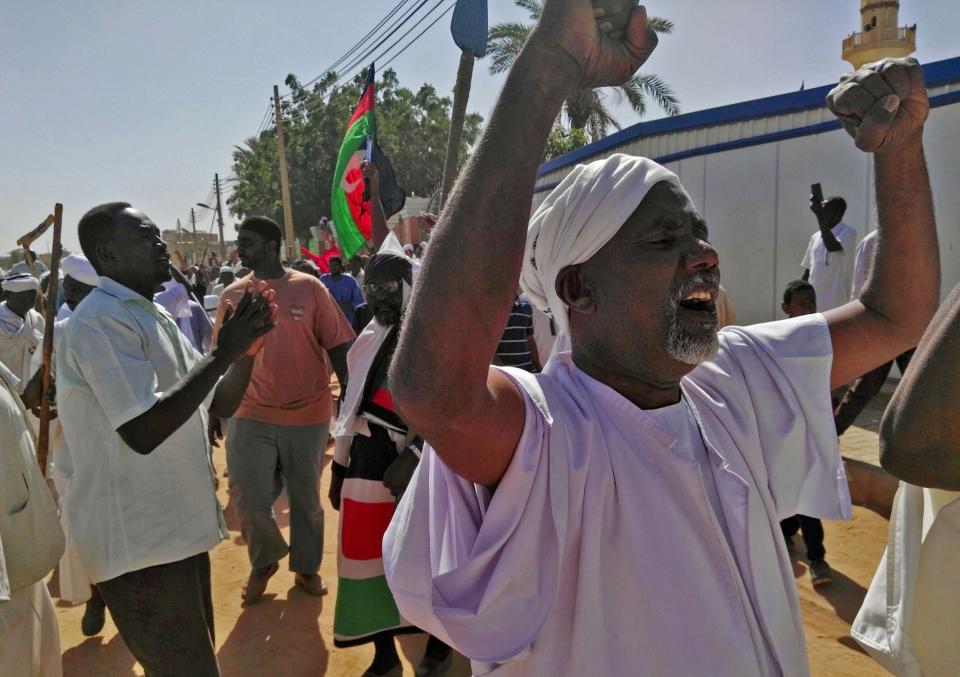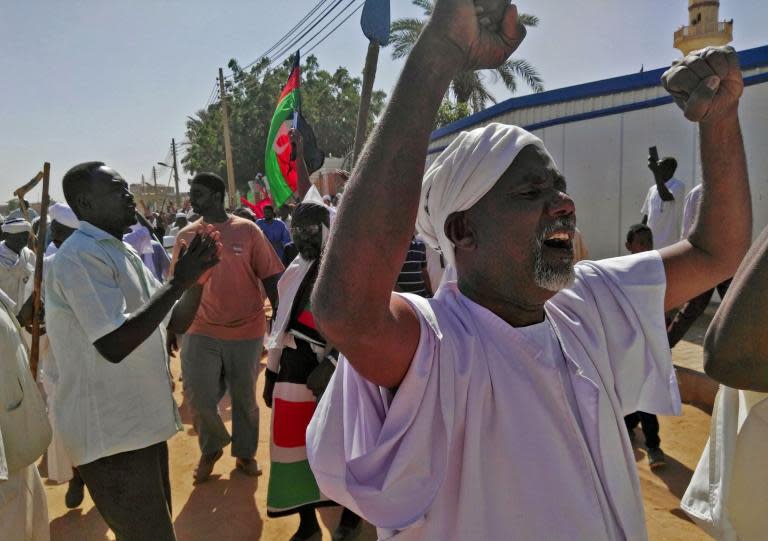How the West let down the people of Sudan – and emboldened regimes across the Middle East
The people’s revolt in Sudan is threatening to achieve very little, but has at least shown how dramatically the West’s approach to the Middle East has changed since the so-called Arab Spring of 2011.
Eight years ago, Barack Obama called on Egypt’s President Hosni Mubarak to step down, saying that the “Egyptian government has yet to put forward a credible, concrete and unequivocal path to democracy.”
In the wake of Sudan’s peaceful uprising, which has at times taken over the streets of Khartoum, Omdurman and other Sudanese cities, no one is expecting to read these words on Donald Trump’s Twitter feed. It would be ludicrous to expect a leader in thrall to strongman politics to ever call on Omar Al-bashir to step down.
In fact, Trump is doing the exact opposite. Instead of being on the front foot and stepping up to Bashir’s repressive regime, he chose to (indirectly) empower him.
The US has come to share traditional Arab regimes’ phobia towards street movements of any sort. And the West has relinquished its responsibility towards the suppressed people of the Middle East; given up on their hunger for democratic change.
It is understandable, on one level. The glide into chaos seen in Syria, Yemen and Libya, and the rise of Islamists to power in Egypt and Tunisia, prompted many in Washington to think that providing instant support to popular uprisings in the Middle East is a dangerous gamble. In Sudan, therefore, they decided to stick with the devil they know.
But Sudan has revealed the toxic nature of this immoral and paradoxical conviction. The people of Sudan are not Islamists. They are, in fact, protesting against an Islamist regime.
You might be thinking that Sudan could turn into another Syria. In 2011, the unrealistic notion of a peaceful, secular transition to democracy dominated decision making in the West. The outcome was utterly horrifying. From Syria to Yemen, at least half a million people have perished, and more than 10 million have been left homeless. The West’s Arab Spring strategy failed, such as it was, and anyone watching Sudan from the oval office today would be forgiven for thinking twice before supporting the revolt.
Equally, though, it is not morally justified or righteous to allow peaceful protesters to take the blame (and the punishment) for the implications of that decision. Those who are anxious about violence and chaos (if they really are) should see that they have a responsibility to restrain Bashir from using excessive force or live ammunition. If the West is reluctant to boost the protest, that does not mean it should allow the regime to plough on, unchecked.
Even if regime change is not on the table, we still have heard nothing from Trump to encourage Bashir into negotiations with protesters, or down the path of political, social and economic reforms.
And let’s not leave this all at the White House’s door. Have you read any statement from European leaders arguing that Bashir should abandon the planned constitutional change which would allow him to cling on to power indefinitely after the end of his final term in 2020?
No. Not a single word.
The West’s passive approach towards the Sudanese protests has paved the way for other Arab regimes to step in, despite of the bad blood between Bashir and most of his fellow presidents and kings.
The truth is that no Arab leader seems to like Bashir. His ambivalent policies (one day he backs Iran against the Saudis; another he supports the Saudis over Iran) set him apart from any regional caucus. However, nobody appears to be prepared to give up on him entirely. It is not in any regime’s interest to remind the people, eight years on, that an uprising can indeed unseat the government of the day, and this seems to be a strategic priority for Arab rulers, over Bashir’s (and of course Sudan’s) future.
Bashir is still wanted by the International Criminal Court for crimes against humanity. Since he was alleged to have turned Sudan into a safe haven for Osama bin Laden in the 1990s, his relationship with the West crumpled. Then the usual mistakes were made. As in Iraq, a device designed to punish a rogue regime ended up punishing the people. Brutal economic sanctions kicked Sudan four decades backwards. Now Sudan’s economy is tentatively on its feet. What would you expect? People will rebel, of course. And the West’s moral reaction has been absent.
Sudan has been forgotten. But it will not go away. Revolts on the Nile will likely draw the Middle East map for decades to come. The West must decide whether it will now risk being on the right side of history.

 Yahoo News
Yahoo News 

